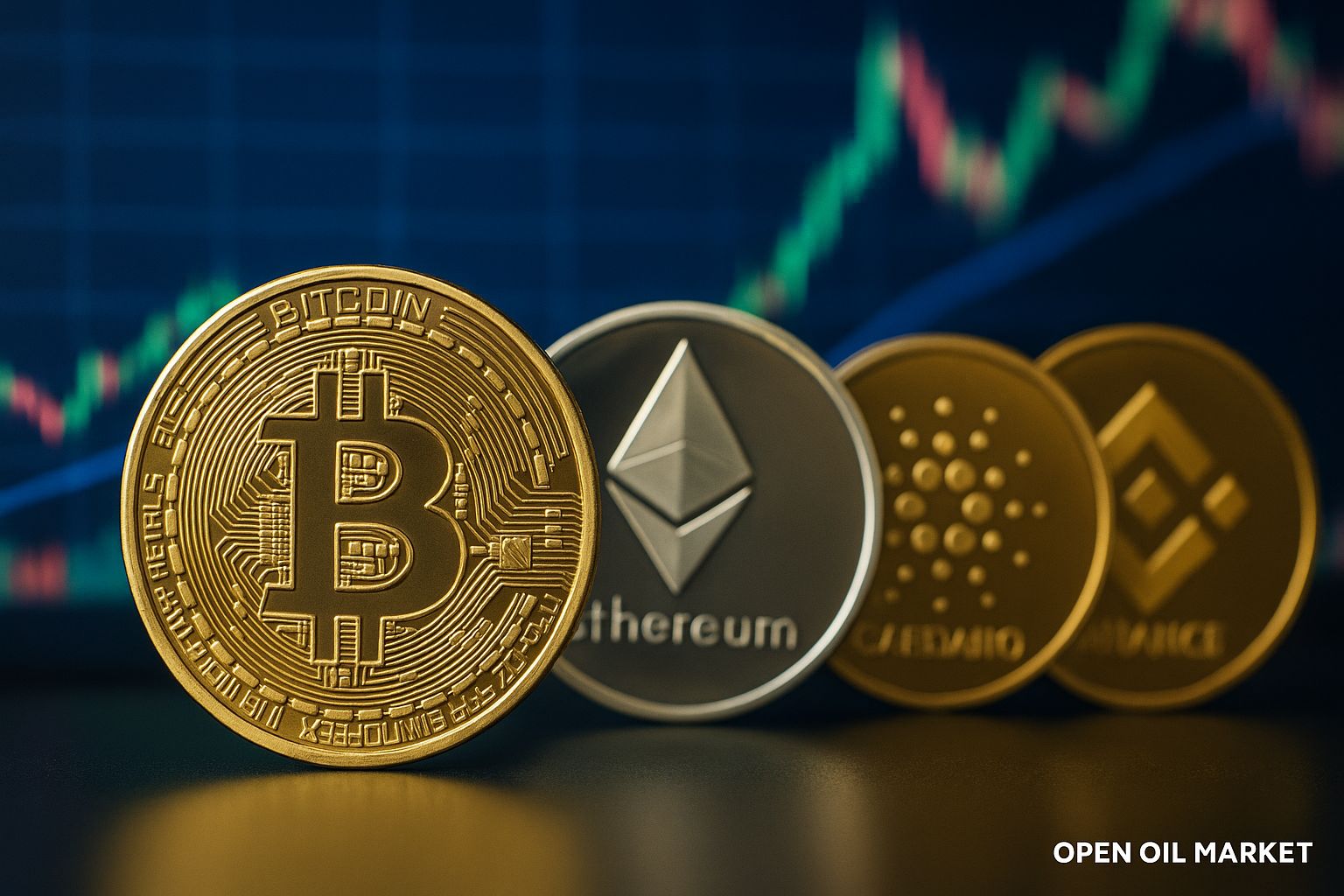
Detailed Overview of Economic Events and Corporate Reports for August 22, 2025. Jerome Powell's Speech at the Jackson Hole Symposium, Preliminary GDP of Germany, Inflation in Japan, as well as Results from Companies in the USA, Europe, Asia, and Russia.
The Friday session of the concluding week of August carries several key events for global markets. In the morning, the preliminary estimate of Germany's GDP for Q2 2025 will be released - a vital barometer of the Eurozone's economic condition. Prior to this, fresh inflation figures from Japan will be disclosed overnight, providing insights into how decisively the Bank of Japan may change its ultra-loose monetary policy. However, the main highlight of the day will be the speech of the Federal Reserve Chair Jerome Powell at the annual economic symposium in Jackson Hole. Investors around the world are holding their breath for signals regarding the future course of U.S. monetary policy. On the corporate front, it will be a relatively quiet day: there are almost no major reports, so market attention will be focused on macroeconomic indicators and Powell's rhetoric. It is essential to evaluate these events collectively to understand the mood that markets will carry into the weekend.
Macroeconomic Calendar (MSK)
- 02:30 — Japan: Consumer Price Index (July).
- 09:00 — Germany: GDP for Q2 2025 (preliminary estimate).
- 17:00 — USA: Jerome Powell's speech at the economic symposium in Jackson Hole.
Key Points on Japan's Inflation
- Core Inflation and the 2% Target. The key indicator is the growth rate of core CPI (excluding fresh food prices). If core inflation significantly exceeds the Bank of Japan's target of 2% again, it will heighten expectations that the regulator will continue to move away from ultra-loose policy and may proceed with tightening measures (such as widening the yield curve of bonds or even raising rates).
- High CPI: Impact on Yen and Stocks. An acceleration of inflation, particularly in the core component, is likely to lead to a strengthening of the yen on the forex market. For the Japanese stock market, this scenario is ambiguous: the banking sector would receive an upward boost (due to the prospects of increased interest margins), while export-oriented companies (automotive, electronics) might face pressure from a stronger national currency.
- Declining CPI: BoJ to Maintain Course. If the rise in consumer prices slows down or remains moderate, the Bank of Japan is likely to continue its cautious stance. The absence of inflationary pressure would weaken the yen, supporting shares of Japanese exporters and the overall market. Investors would interpret such data as a signal that sharp changes in BoJ policy are unlikely in the near term.
Germany's GDP: A Check for Recession
- Economic Stabilization. Zero growth or slight positive GDP in Germany for Q2 will be a pleasant surprise for markets. Such a result would indicate that the largest economy in Europe may be avoiding a protracted recession. Signs of stabilization, even if modest, will be welcomed: expectations for the worst-case scenario will soften, European indices (DAX, Euro Stoxx 50) will receive support, and the euro may strengthen due to increased investor confidence.
- Recession Confirmed. Another decline in German GDP (the third consecutive quarter of decline) would officially confirm a recession. This signal would amplify pessimism in the markets: a negative reaction from European stocks is likely, especially in cyclical sectors sensitive to the business cycle. In this scenario, the euro would be under pressure, as weak statistics would heighten expectations for stimulus measures from the German government or a more lenient ECB policy.
- Surprise Possibility. Substantial growth in Germany's GDP is considered unlikely by experts due to unfavorable conditions at the beginning of the year. However, if the data exceeds forecasts and shows a confident economic upturn, the markets will react with a surge of optimism. In this case, significant strengthening of European stock indices and the euro can be expected, as investors determine that the worst phase of the downturn is behind.
Jackson Hole: Market Reactions to Powell's Speech
- Hawkish Scenario. If Jerome Powell emphasizes the Fed's readiness to further raise rates or keep them high for an extended period to combat inflation, markets will interpret this as a "hawkish" signal. In this case, a wave of sell-offs on stock markets is likely: rising yields on U.S. bonds and a stronger U.S. dollar will exert pressure primarily on the technology sector and other interest-sensitive industries.
- Dovish Scenario. If the speech is more balanced or soft – for instance, if Powell acknowledges a clear slowdown in inflation and notes that the Fed may exhibit flexibility going forward – investors will see this as a signal of the imminent conclusion of the tightening cycle. Such a tone would support risk appetite: stock indices would gain upward momentum, bond yields would decline, and the dollar may weaken on expectations of future policy easing.
- Nuances and Volatility. Specific decisions from the Fed Chair in Jackson Hole are unlikely to unfold, but even minor rhetorical nuances could significantly adjust market expectations. During the speech, a notable increase in volatility can be expected: traders worldwide will react swiftly to the words spoken. Investors should prepare for sharp movements in key assets in the second half of the day – both during the speech and immediately after.
Earnings Report: Before Market Open (BMO, USA and Asia)
- BJ’s Wholesale Club (BJ) – an American operator of club wholesale stores (retail, similar to Costco). Focus will be on comparable sales dynamics and club membership numbers amid inflationary pressures, profitability of the trading business, and management's forecast for demand in the second half of the year. BJ's results will help assess the state of consumer demand in the U.S. in the discounter and warehouse club segment.
- XPeng (XPEV) – a Chinese electric vehicle manufacturer (with key competitors NIO, Li Auto, and Tesla). Key metrics include quarterly electric vehicle delivery volumes and order trends, gross margin trends (improvement or pressure from price warfare in the Chinese market), and the company's cash reserves. XPeng's report will show how effectively the company is reducing losses and competing in the world's largest EV market.
- Other Companies – No significant reports from European or Russian issuers are expected before the markets open. Most major companies have already reported quarterly results earlier in the season. Other publications today pertain to individual mid-sized companies and are unlikely to have a significant impact on the broader market.
Earnings Report: After Market Close (AMC, USA)
- No significant corporate earnings publications are scheduled after the close of the U.S. market. Market participants will have an opportunity to catch their breath after a busy week and assess the accumulated information. The absence of evening releases indicates that external factors and macroeconomic outcomes of the day will determine the mood at the session's conclusion.
Other Regions and Indices: Euro Stoxx 50, Nikkei 225, MOEX
- Euro Stoxx 50: As of August 22, the earnings season for the Eurozone blue chips is nearly over, and there are no new drivers from corporate results. This means that European markets will largely rely on macroeconomic statistics and external conditions. Investor focus will be on the morning data regarding Germany's GDP, which will set the tone for trading, as well as the dynamics of the euro and oil prices (through which the effects of the Fed's monetary signals are transmitted).
- Nikkei 225 / Japan: The publication of financial results by companies for Q2 is concluding in the Japanese market. Only a few releases from enterprises remain, which no longer significantly influence the overall investment environment. The primary focus is on macro conditions: inflation data and the Bank of Japan's policy course. These directly impact the yen's exchange rate, and through it, the dynamics of both export-oriented sectors and the banking sector in Japan.
- MOEX / Russia: In Russia, the publication of interim results for the first half from several issuers continues; however, there are no reports from major corporations set for Friday. The peak of half-year reporting from key companies in the Russian market traditionally falls at the end of August - early September. In the absence of major corporate events, the domestic market will be guided by external conditions and macroeconomic signals. The volatility of the Russian market may increase if global events (such as Powell's speech or oil statistics) provoke substantial price movements in raw materials or exchange rates.
Day's Summary: Key Points for Investors
- Powell's Speech (Fed): the key trigger of the day for all markets. The tone of the Fed Chair's comments will determine the short-term direction of asset dynamics. "Hawkish" emphases (willingness to further raise rates or keep them high) may provoke a rise in bond yields and pressure on stocks, while more "dovish" hints (recognition of slowing inflation, signaling a pause in tightening) could, on the contrary, support stock index gains and weaken the dollar. Investors should be prepared for any reaction and quickly hedge risks if necessary.
- Germany's GDP (Eurozone): a metric that determines the mood in Europe. If the statistics indicate a recovery in Germany's economy (even if weak), this will strengthen confidence in the European market: a local rally in EU stocks and a strengthening euro are possible. In case of disappointing numbers (continued decline), European investors will ponder the prospects for new stimuli – a moderately negative reaction is likely, with declining indices and a weakening of the single currency.
- Inflation in Japan (BoJ): CPI data from Tokyo will set the tone for the Asian session. If inflation unexpectedly accelerates, discussions about the Bank of Japan reducing stimulus will intensify – the yen will strengthen, and Asian stock indices may react mixеdly (Japanese banks benefiting, exporters under pressure). In the event of soft inflation figures, the Bank of Japan will likely continue to be cautious, reducing volatility in the currency market and supporting risk appetite in the region.
- Corporate Earnings Reports: Given the nearly complete lack of major reports, the influence of microeconomic factors is minimal. However, certain publications (e.g., results from BJ’s Wholesale Club in the USA) may have targeted impacts on relevant sectors. It is essential to consider signals from any reporting companies – they contribute to the overall picture of demand and business activity. However, today, it is unlikely that corporate news will overshadow macroeconomic significance.
- Week's Conclusion and Risk Management: Friday is packed with significant information, so sharp price fluctuations are possible until the market close. Investors are advised to review the week's results, comparing all gathered data (from inflation and GDP to Powell's speech) holistically. It would be prudent to determine acceptable volatility ranges for their portfolio in advance and utilize protective tools (stop losses, limit orders, hedging). At the end of a week full of events, it is crucial not to succumb to emotions and maintain a balanced approach to risks to confidently enter the new trading week.




